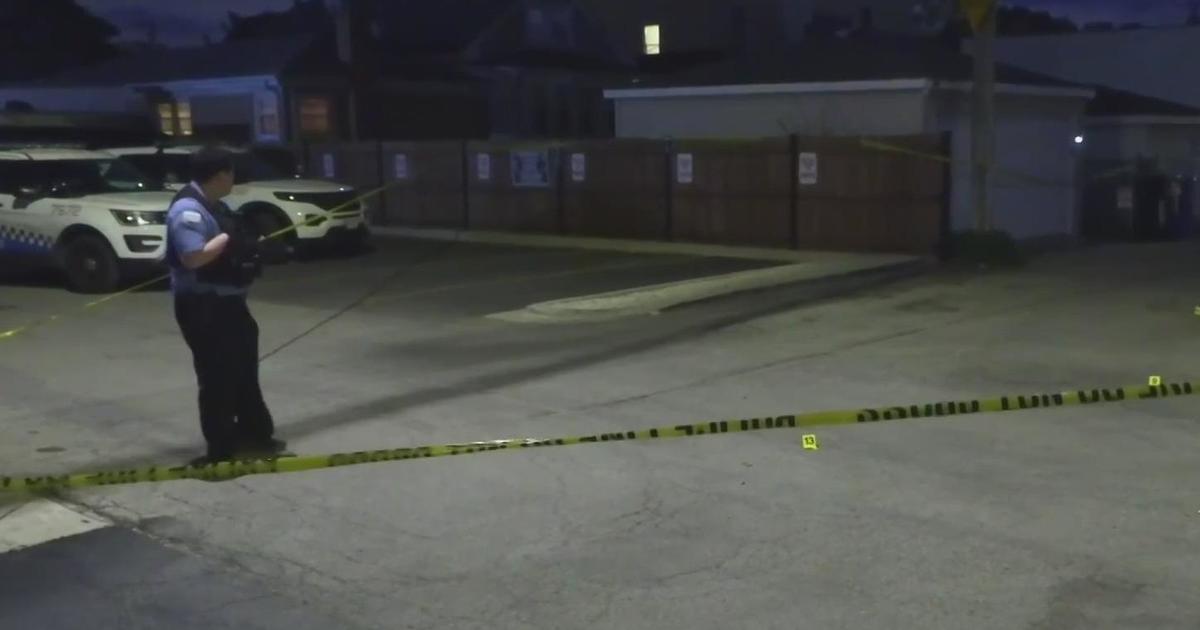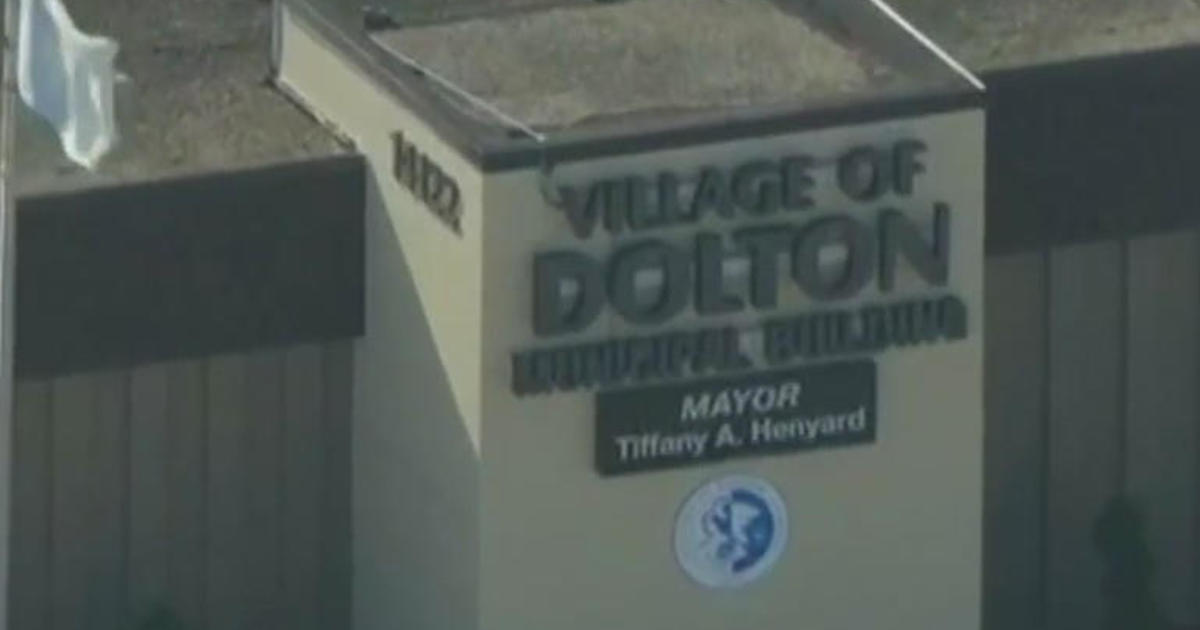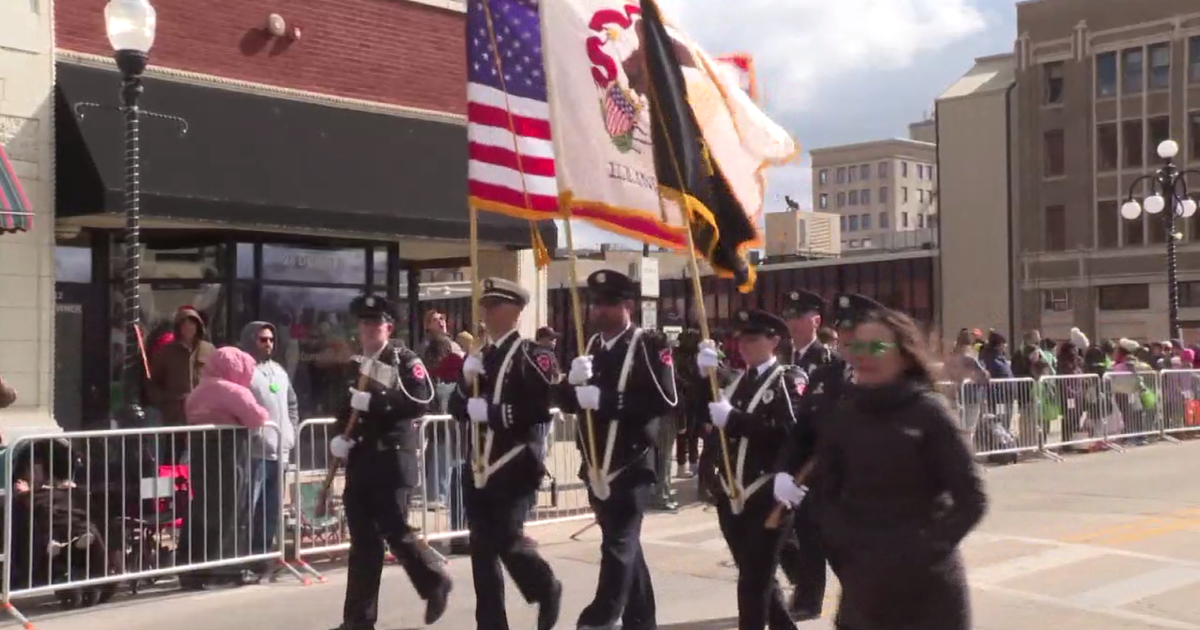Blagojevich: 'F***ing Golden' Meant 'Good Things For Illinois'
UPDATED 05/31/11 7:21 p.m.
CHICAGO (CBS) -- Former Gov. Rod Blagojevich testified Thursday that he had no interest in getting campaign cash in exchange for appointing someone to President Barack Obama's vacated U.S. Senate seat in 2008.
He also tried to explain the most notorious FBI wiretap in the case, in which he described the power to appoint a U.S. Senator as "f***ing golden." Blagojevich told jurors Thursday that he was simply talking about "good things for Illinois." CBS 2's Dana Kozlov has the update of the continuing trial.
In his third day of testimony at his corruption trial, Blagojevich began addressing the most prominent allegation against him: that he wanted to sell or trade Obama's old Senate seat.
Blagojevich testified that, although supporters of U.S. Rep. Jesse Jackson Jr. had approached him with offers of "accelerated fundraising" if Jackson got the seat, he wasn't interested in any such deal.
"My position was no, not interested in it," Blagojevich said. "I wasn't interested in making an appointment of a United States senator in exchange for campaign funds or accelerated fundraising."
The former governor listed several potential candidates he had been considering for the seat, but Jackson wasn't included. Instead, Blagojevich said he was considering himself, Illinois Attorney General Lisa Madigan and a number of prominent African-American politicians.
LISTEN: Newsradio 780's John Cody reports
[https://assets1.cbsnewsstatic.com/i/cbslocal/wp-content/uploads/sites/15116062/2011/05/blago-v5.mp3]
Blagojevich said that the decision was a rare opportunity, so he wanted to weigh all possible options.
"A big decision like that, that's an unusual decision. … I'm picking a United States senator; it's a very rare occurrence," Blagojevich said. "And I wanted to be very careful … to sit through a variety of options. … good ones, bad ones, stupid ones, ugly ones."
Asked if he had a hard time making decisions, Blagojevich said, "I obviously had a hard time making this decision."
Blagojevich also began addressing the secretly recorded phone calls that prosecutors have used against him at the trial.
In one call, his then-chief of staff, John Harris, informed Blagojevich that Obama's chief of staff Rahm Emanuel had sent a message that Obama wanted his friend and adviser, Valerie Jarrett, to get the Senate seat.
In the same call, Blagojevich asked Harris what he could get for that. On the stand, Blagojevich explained what he was talking about.
"A potential horse trade, legal, always predicated on being legal," Blagojevich said.
Later in that call, Blagojevich suggests possibly asking to be appointed as Secretary of the U.S. Department of Health and Human Services.
"I wondered if there might be a role for me to be part of President Obama's historic effort to extend health care to all Americans," Blagojevich explained from the witness stand. But he said he knew the chances were "remote at best."
Blagojevich also contended that part of the recorded phone call was deleted: his response when Harris explained that Blagojevich could get "good things for Illinois" if he appointed Jarrett.
"I told Harris 'good things for Illinois is our priority,' something along the lines of that." Blagojevich said. "This is essentially my definition of 'effin' golden,' if you will."
On his first day on the stand, Blagojevich promised jurors that he would explain his most infamous comment on the FBI wiretaps, another call in which he was talking to adviser Doug Scofield about his power to appoint a U.S. Senator.
"I've got this thing and it's f***ing golden. And I, I'm not giving it up for f***ing nothing," Blagojevich said in that call.
Judge Warns Attorneys Not To Raise Advice Of Counsel Defense
Blagojevich also emphasized that he consulted with a number of aides and advisers about the Senate seat – many of them laywers – who did not object to his ideas about the Senate seat. Two of the lawyers in that group were his general counsel Bill Quinlan and his chief of staff, John Harris, a former military lawyer.
He also listed off a number of other political advisers, including deputy governor Bob Greenlee, media consultant Bill Knapp, D.C. pollster Fred Yang, former campaign aide Doug Scofield.
Blagojevich said all of those men were people he trusted for advice.
"I relied on their judgment, I sought out their judgment, I respected their judgment," Blagojevich said.
But after jurors were sent home for the day, U.S. District Judge James Zagel chided the defense team, reminding them that he has barred them from using such an "advice of counsel" defense.
Zagel explained that the defense must meet certain guidelines to use such a defense, but Blagojevich's attorneys never made an attempt to do so. He said he will instruct the jury that Blagojevich can't argue he wasn't properly advised about the legality of his ideas for the Senate seat.
The judge also told Blagojevich's attorneys that if they want to claim that the former governor's plans to make a deal for the Senate seat were just "politics as usual," that they must call an expert witness on it.
Blagojevich Denies Tollway, Hospital Shakedowns
Blagojevich spent much of the earlier part of Tuesday talking about allegations that he was trying to squeeze two executives for campaign cash, including Children's Memorial Hospital CEO Patrick Magoon.
Prosecutors contend that Blagojevich was trying to squeeze Magoon for a contribution while dangling $8 million in state funding for the hospital.
Magoon testified earlier at the trial that he never gave a contribution because he felt the request was improper.
But Blagojevich flatly denied that his request for campaign money from Magoon was linked to the funding for the hospital.
His defense attorney, Aaron Goldstein, asked "Did you ever threaten Mr. Magoon to have a fundraiser for you? … Did you ever threaten Mr. Magoon to contribute campaign contributions to you? … Did you ever demand that Mr. Magoon give you a fundraiser? … Did you ever hold up this pediatric rate increase in order to get a campaign contribution from Mr. Magoon?"
Blagojevich said no to each question.
Goldstein later tried to bring out the defense theme that Blagojevich was waiting to approve the rate increase for the hospital because he was worried about the state budget.
On the stand, Blagojevich said that in 2008, the legislature had sent him a budget that was $2.5 billion in deficit, so he decided to use his veto power to make major spending cuts to the legislature's budget plan.
That testimony ties to a tape jurors heard earlier in the trial when Blagojevich's former deputy governor, Bob Greenlee was on the stand.
In the tape, Blagojevich asked Greenlee if he had "total discretion" over the rate increase.
"We could pull it back if we needed to, budgetary concerns, right?" Blagojevich said in the call.
Greenlee has testified that he believed Blagojevich was telling him to hold up the rate increase, because Blagojevich had never before expressed budgetary concerns about a health care issue.
But Blagojevich testified that he had genuine budgetary concerns about the requested rate increase, because he had already made significant cuts to the budget before that.
"Was your intent to hold up this rate increase?" Goldstein asked. "Was that an order to Mr. Greenlee to hold up the rate increase?"
Blagojevich said "absolutely not."
Instead, Blagojevich said he was asking if he still had the discretion to hold up the rate increase, because he was considering calling Magoon personally about raising campaign cash.
He said he wanted to approach Magoon for a possible contribution because Magoon had given money to him in the past, but insisted he didn't want to ask Magoon for any money while the status of the rate increase was still up in the air.
"That was important to help me decide whether I should call Patrick Magoon," Blagojevich said. "I don't want to call him and make him feel uncomfortable with this pediatric rate increase still pending."
Blagojevich said that, as far as he was concerned, the rate increase "was a done deal. It was happening."
Earlier, Blagojevich also flatly denied allegations that he tried to shake down road building executive Gerald Krozel for $500,000 in campaign contributions in exchange for a major tollway expansion project.
His defense attorney, Aaron Goldstein, asked Blagojevich, "Did you demand campaign contributions from Gerry Krozel?"
Blagojevich said no.
Prosecutors have contended that Blagojevich was trying to squeeze Krozel for $500,000 in campaign contributions in exchange for a $6 billion tollway expansion project. They have argued that Blagojevich approved a smaller $1.8 billion tollway plan in order to wet Krozel's appetite and convince him to raise money for Blagojevich to get the larger project approved.
Krozel testified earlier that Blagojevich tried to pressure him into raising campaign cash by hinting he might launch the $6 billion highway program, something the road building industry wanted desperately. Krozel said Blagojevich made it clear that approval of the larger program was contingent on his own ability to raise money for the governor.
But Blagojevich denied that he ever told Krozel that he was thinking of going forward with the $6 billion tollway plan in 2009.
"I never said that, no," Blagojevich said.
"At this meeting, did you threaten him in any way to make sure that he fundraise for you?" Goldstein asked. "Did you at any time during this meeting in any way communicate that in order for him to get these tollway plans, he had to fundraise for you?"
Blagojevich answered no to both questions. He also testified that Krozel told him he was willing to raise campaign cash from his fellow road builders.
Technical Difficulties Cause Early Break In Court
Zagel had to call an early break in Tuesday's proceedings when Blagojevich's microphone began cutting in and out why he was on the stand.
As the judge called for a break, Blagojevich joked that it wasn't his fault the microphone was malfunctioning. But it turned out it was his fault.
Courtroom deputies explained that a binder of FBI wiretap transcripts that Blagojevich had with him on the stand had been pressing up against the microphone's on/off switch.
"I misspoke, evidently it was my fault," Blagojevich said after a short break.
Defense Says Prosecutors "Making Faces"
After a short break in the morning's testimony, defense attorney Lauren Kaeseberg voiced an objection to the way prosecutors apparently have been reacting to Blagojevich's testimony on the stand.
"The government attorneys are making faces," Kaeseberg said. "The jury's noticing this and paying attention when they're doing this. … It's contesting the governor's credibility."
But U.S. Assistant Atty. Reid Schar denied that the prosecution had been making any faces at Blagojevich's testimony.
"This is the first we're hearing of any concerns," Schar said. "I don't think that's been the case." He did concede that prosecutors often have been seen whispering to each other when they believe they might need to object to something Blagojevich has been said.
Throughout his testimony, the former governor has repeatedly been chided by the judge for wandering off topic by explaining how state government works in general or otherwise failing to give a direct answer to his attorney's questions.
Earlier in the day, as Blagojevich was testifying about his meeting with Krozel, Assistant U.S. Atty. Carrie Hamilton could be seen shaking her head and laughing under her breath as the former governor was telling jurors that he'd offered Krozel "the best seat in the house," and offered to get him a coffee or soft drink, but couldn't remember what Krozel had to drink.
But Zagel said he hasn't seen prosecutors making faces in front of the jury. Even so, he said, "I'll watch the government very carefully."
Juror Dismissed "For Personal Reasons"
Although nothing has been said about it in open court, officials confirmed Tuesday that one of the 18 jurors has been dismissed from the trial.
Clerk of the Court Michael Dobbins confirmed in an e-mail on Tuesday that Zagel has dismissed one of the jurors "for personal reasons."
CBS 2's Dana Kozlov reported exclusively on Friday that a juror had been missing from the trial for two days. There were six alternate jurors seated at the start of the trial, so there are still more than enough jury members attending the trial to render a verdict.
The dismissed juror has been gone from the trial since Thursday, if not earlier.
--Todd Feurer, CBS 2 Web Producer



